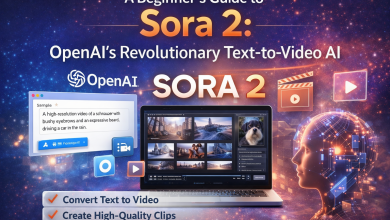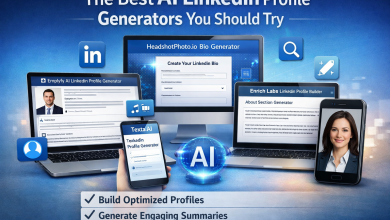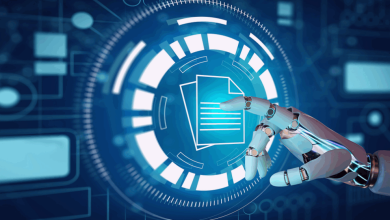
- In partnership with Growth School
Happy Friday, AI Enthusiasts!
In today’s edition:
- Google’s Gemma 2B Sets New Standard, Beats GPT-3.5
- Taco Bell to Roll Out AI-Driven Drive-Thrus by End of 2024
- World’s First Major AI Law Now in Effect: Impact on U.S. Tech Giants
- U.S. Senators have introduced the “NO FAKES” Act
– Naseema Perveen
WHAT CAUGHT OUR ATTENTION MOST
Google’s Gemma 2B Sets New Standard, Beats GPT-3.5

Google has introduced its latest AI innovation, the Gemma 2B—a lightweight yet highly capable model that has outperformed larger counterparts like GPT-3.5 and Mistral 8x7B in key benchmarks. This launch follows the Gemma 2 series, which includes the new safety tools ShieldGemma and Gemma Scope.
The Gemma 2B is a compact AI model designed to deliver impressive results by learning from larger models through distillation. Google asserts that Gemma 2B surpasses GPT-3.5 models on the Chatbot Arena, showcasing advanced conversational AI performance.
- The Gemma 2B is optimized to run efficiently across various hardware platforms, from edge devices and laptops to comprehensive cloud setups like Vertex AI and Google Kubernetes Engine (KGE). It also benefits from the NVIDIA TensorRT-LLM library for improved speed.
- The model supports integration with Keras, JAX, Hugging Face, NVIDIA NeMo, Ollama, and Gemma.cpp, and will soon be available on the MediaPipe platform for easy development.
- Despite having 2.6 billion parameters, the Gemma 2B was trained on a massive 2 trillion-token dataset. It achieved a score of 1130 on Chatbot Arena, comparable to larger models like GPT-3.5 Turbo and Mixtral 8x7B.
- The model scored 56.1 on MMLU (Massive Multitask Language Understanding) and 36.6 on MBPP (Mostly Basic Python Problems), showing more than a 10% improvement over its predecessor.
- Google’s Gemma 2B aims to enhance AI capabilities by offering safer, more insightful tools for developers, opening new avenues for on-device AI innovation. The model is open-source and available for download on Google’s announcement page.
KEEP YOUR EYE ON IT
Taco Bell to Roll Out AI-Powered Drive-Thrus by End of 2024

Yum Brands has announced that by the end of 2024, hundreds of Taco Bell locations in the U.S. will feature artificial intelligence in their drive-thru lanes. This move is part of a broader trend among restaurant chains, including Wendy’s and White Castle, which are gradually adopting AI technology to cut labor costs and speed up service.
The goal to extend this AI technology globally, with plans to implement voice AI in drive-thru lanes around the world. The company’s approach is one of the most ambitious in the industry, promising enhanced service speed, reduced labor expenses, and increased sales through upselling.
While other companies like McDonald’s have recently halted their AI trials, Yum Brands has made significant progress. After expanding its pilot program from five to 30 Taco Bell locations in California, over 100 U.S. Taco Bell restaurants now use voice AI. This technology has reportedly improved order accuracy, reduced wait times, and lightened employees’ workloads.
World’s First Major AI Law Now in Effect: Impact on U.S. Tech Giants

The European Union’s AI Act officially takes effect on Thursday, introducing sweeping regulations for artificial intelligence across the EU. This landmark legislation, approved by EU member states and the European Commission sets a comprehensive framework for AI governance. It imposes stringent requirements on high-risk AI applications like autonomous vehicles and medical devices while banning unacceptable-risk uses such as social scoring and predictive policing.
For global tech giants like Microsoft, Google, Amazon, and Meta, the AI Act means significant changes. These companies must adapt to new regulations or face hefty fines, potentially up to 7% of global revenue. Generative AI models like GPT and Google’s Gemini are subject to strict guidelines, including transparency and cybersecurity measures. While the Act is now in force, most provisions will only come into effect by 2026, with a 36-month transition period for existing generative AI systems.
U.S. Senators have introduced the “NO FAKES” Act

U.S. Senators have introduced the “NO FAKES” Act, aiming to penalize platforms hosting unauthorized deepfakes and digital replicas. The bill allows for exceptions like parody, but challenges remain in ensuring accurate content removal and enforcement.
It provides a mechanism for individuals to request the removal of deepfakes that depict them in false or misleading contexts. However, the bill includes exceptions for parody, documentaries, and critical commentary, which may complicate enforcement. Despite these challenges, the Act represents a step forward in regulating AI-generated content and enforcing penalties for misuse, though it will need to navigate complex issues around proving the authenticity of such content.
ICYMI
- Google Introduces 3 Exciting New AI Features in Chrome for Enhanced Browsing.
- Studies show AI could predict bowel cancer recurrence, helping doctors identify high-risk cases and reduce unnecessary chemotherapy.
- AI in Space: Scientists Plan to Share Human Secrets with Aliens.
- Apple Delays AI Feature Rollout in First iOS 18 Update.
- AI revolutionizes the 2024 Olympics.
MONEY MATTERS
- AI-driven personalization can boost online retail sales by 15%.
- IBM reports that chatbots can cut customer service costs by up to 30%.
- PwC predicts China and North America will capture $10.7 trillion in AI-driven economic gains.
- In 2023, the US leads in private AI investment with €62.5 billion, while China follows with €7.3 billion.
- AI is expected to contribute a significant 21% net boost to the US GDP by 2030.
LINKS WE’RE LOVIN’
✅Podcast: Andres Ravinet discusses Accelerating Sustainability with AI.
✅Cheat sheet: Monitoring Cheat Sheet by ByteByteGo.
✅Course: IBM AI Engineering Professional Certificate by Romeo Kienzler & Co.
✅Whitepaper: Learn how to Harness The Power Of Your Unstructured Data With NLP.
✅Watch: Mr. Whosetheboss reviews the Samsung Z Flip 6.
That’s all for now. And, thanks for staying with us.
Join 130k+ AI and Data enthusiasts by subscribing to our LinkedIn page.
Become a sponsor of our next newsletter and connect with industry leaders and innovators.



